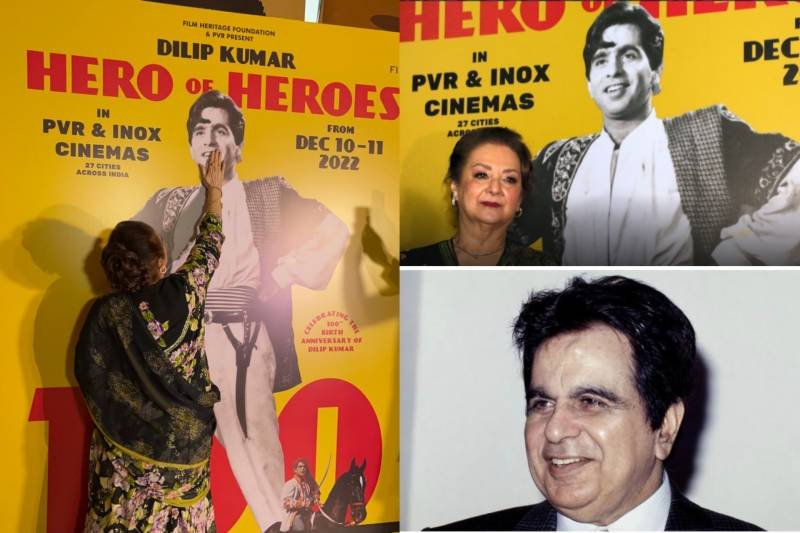The fans of the late, legendary Bollywood actor Dilip Kumar haven’t forgotten him at all as his 100th birthday approaches. Saira Bano, the renowned actor’s widow, broke down in tears at a memorial service for Kumar.
The Film Heritage Foundation organized a two-day film festival titled “Dilip Kumar- Hero of Heroes” to honor Dilip Kumar’s 100th birth anniversary. The late actor’s wife attended the screening of the veteran’s films.
At the age of 98, Kumar passed away at Hinduja Hospital in Mumbai on July 7, 2021, following a protracted illness as a result of multiple age-related conditions, in addition to testicular cancer and pleural effusion.
Saira can be seen trying to contain her tears as she caresses the poster of the deceased actor in a video that went viral on social media. Banu was seen standing next to Farida Jalal and others while wearing a traditional black outfit.
Also notable is the fact that the event screened Kumar’s critically-acclaimed movies including Aan (1952), Devdas (1955), Ram Aur Shyam (1967) and Shakti (1982), in over 30 cinema halls and 20 cities across India.
The film pioneer is survived by his 76-year-old wife, Saira Banu – a popular Bollywood star back in the 1960s and 1970s. Dilip Kumar, whose birth name was Yusuf Khan, was born in December 1922 in Peshawar [pre partition era] to Ayesha Begum and Lala Ghulam Sarwar Khan.
Khan chose the name Dilip Kumar [a Hindu name] following his colleagues at that time and debuted in Jwar Bhata in the year 1944. The debut film failed to garner much attention and three years later, with the movie Jugnu, which also starred Noor Jehan, he clinched his first box office hit.
Kumar is listed in the Guinness World Records for winning the maximum number of awards by an Indian actor and was also honored with the top Indian civilian awards including Dadasaheb Phalke Award in 1994 and Padma Vibhushan in 2015. The tragedy King was last seen in Qila film the year 1998.
Some of his finest films include Mughal-e-Azam, Gunga Jamuna, Devdas, Ram Aur Shyam, Naya Daur, Madhumati, Kranti, Vidhaata, Shakti, and Mashaal.
